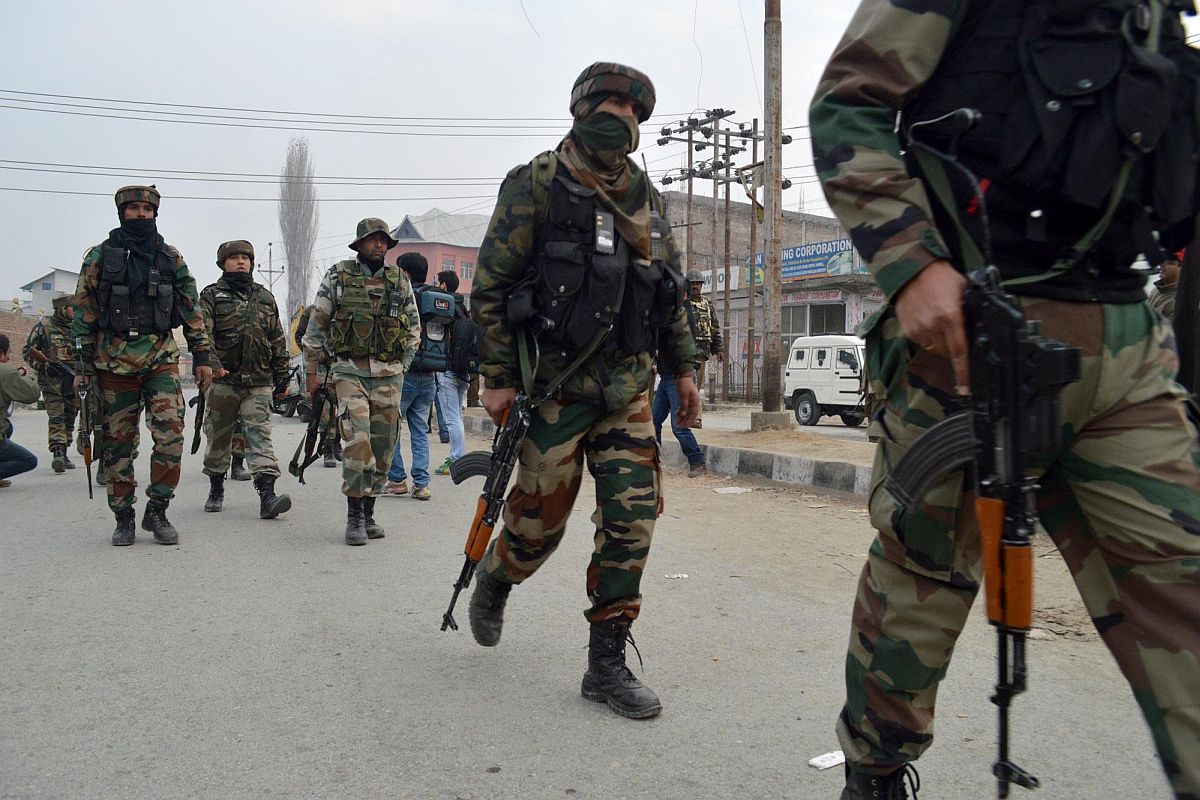UN chief urges efforts to end crisis in Congo
UN Secretary-General Antonio Guterres has called for more efforts to end the crisis in the eastern Democratic Republic of the Congo (DRC).
Jammu and Kashmir was put under virtual curfew on 5 August when the Modi government scrapped the Article 370 and split the state into two union territories.

Security personnel deployed in Srinagar. (File Photo: IANS)
The Jammu and Kashmir government on Tuesday said that restrictions are being eased out in a phased manner in the Valley and the situation in the Jammu division has been restored to normal.
Jammu and Kashmir was put under virtual curfew on 5 August when the Modi government scrapped the Article 370 and split the state into two union territories.
Advertisement
Restrictions have been lifted in Jammu but the mobile internet lockdown is continuing.
Advertisement
Government’s spokesman and principal secretary (Planning), Rohit Kansal, said that the restrictions are being eased out after a local assessment by relevant local authorities of different areas and localities of the Kashmir division in a phased manner.
The restrictions in #JammuKashmir are being eased out in a phased manner in the Valley and the situation in the Jammu division has been restored after assessment by relevant local authorities. (1/4)@diprjk @JmuKmrPolice
— Spokesperson, Ministry of Home Affairs (@PIBHomeAffairs) August 13, 2019
Referring to the initiatives taken by the government with reference to various essential services, Kansal said that medical services are being provided to the people without any hindrance. He further informed that 13,500 OPDs have been given requisite medical treatment and 1400 new admissions have also been done, besides performing 600 medical procedures.
He said that availability of all drugs including the life saving have been ensured in every hospital across the Valley.
The spokesperson further said that national highway continues to function normally and 100 heavy vehicles carrying LPG, and other essentials are plying on a daily basis.
He further said that flights from Valley are operating normally and 1400-1500 light motor and other vehicles are plying on a daily basis.
While referring to the full dress rehearsal of the Independence Day, Kansal said that it has been done in every district of the Valley and the necessary arrangements have been put in place for the smooth conduct of Independence Day celebrations.
Meanwhile, almost 400 political leaders of the Valley including two former chief ministers – Omar and Mehbooba are under detention.
The Supreme Court on Tuesday said the Central government required time to bring back normalcy in the Kashmir Valley as nothing can be done overnight.
The apex court was hearing on a petition filed Tehseen Poonawalla seeking withdrawal of curfew, blocking of phone lines, internet, news channels and other restrictions from Jammu and Kashmir.
An apex court bench headed by Justice Arun Mishra made the observation when the Central government informed the court that it was doing everything necessary to maintain law and order in Jammu and Kashmir.
Attorney General KK Venugopal said the Government was reviewing the day-to-day situation in Jammu and Kashmir and was committed to ensuring least human rights violations.
“It’s a highly sensitive situation; it’s in the interest of everyone. Not a single drop of blood has been shed, no one died,” Venugopal told the court.
Following this, the Supreme Court deferred after two weeks the hearing on the petition.
The Parliament had last Tuesday approved a resolution to abrogate special status to Jammu and Kashmir under Article 370 of the Constitution and pass a bill to split the state into two Union Territories – Jammu and Kashmir, and Ladakh.
Prior to that, a massive security build-up was witnessed in the valley with over 8000 additional paramilitary troops being airlifted to the state.
All educational institutions were closed till further orders and all Kashmir University exams were postponed without specifying the next date. Mobile internet services were also snapped.
Advertisement